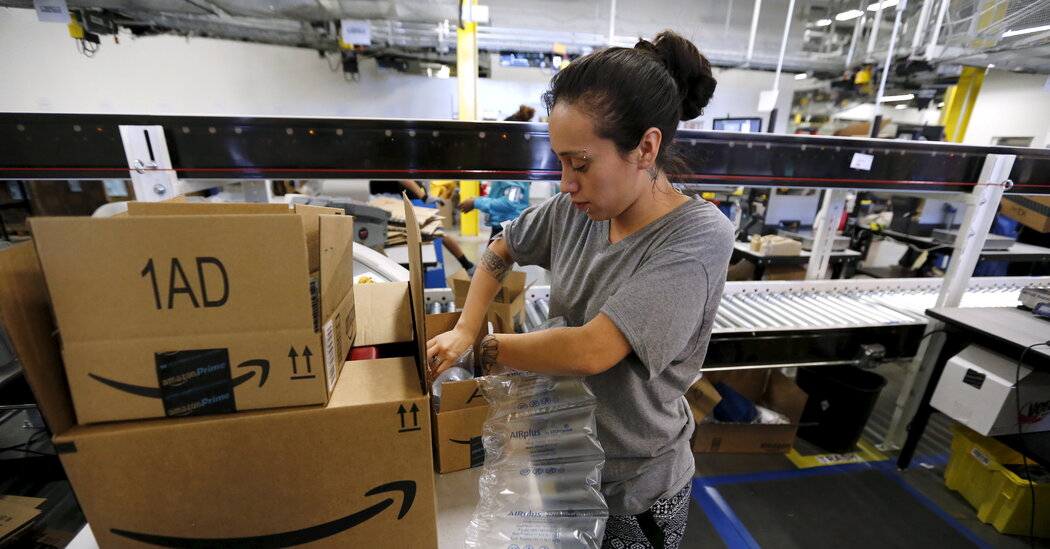They’ll be replaced in North America with paper packing, eliminating some 15 billion pillows a year. Plastic film is a major pollutant.
They’re a familiar sight in Amazon packages: The plastic air pillows designed to keep products safe in transit, but that also end up in landfills by the billions.
Now, under pressure from environmentalists to cut down on its use of plastic packaging, the world’s largest online retailer is close to replacing all of its puffy plastic pillows with recycled paper filler.
Amazon says the move will avoid the use of almost 15 billion air pillows a year in North America. It is the Seattle-based retail giant’s “largest plastic packaging reduction effort” to date, the retail giant said in a news release on Thursday.
It’s just one way companies are responding to an outcry from people and environmental groups over retailers’ use of plastic packaging, particularly as online shopping continues to surge.
Oceana, the ocean conservancy group that has long sparred with Amazon over its plastic use, called the move “welcome news for the oceans and the company’s customers.” But it called for further reductions in single-use packaging, like the padded plastic envelopes that Amazon continues to use.
The pillows are made from plastic film, which scientists have found is the most common form of plastic litter in the sea and seabed close to the shore. Plastic film can be deadly to wildlife including sea turtles and sea birds. And unlike paper alternatives, plastic film generally can’t be composted or recycled in curbside programs.
